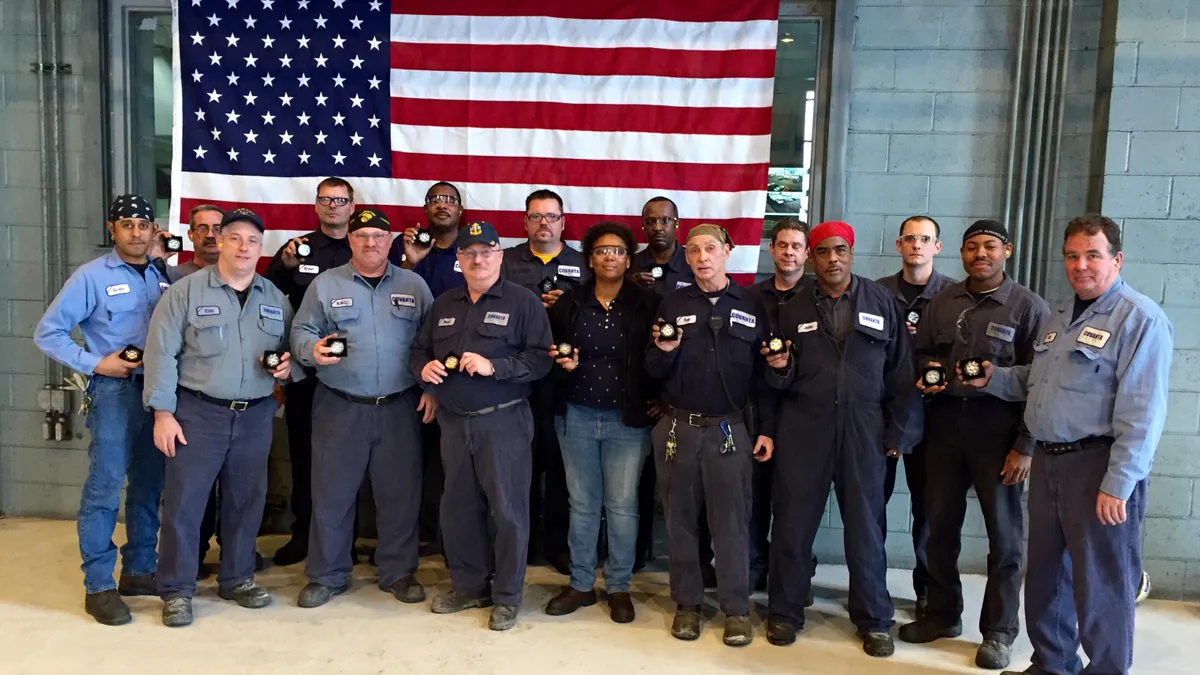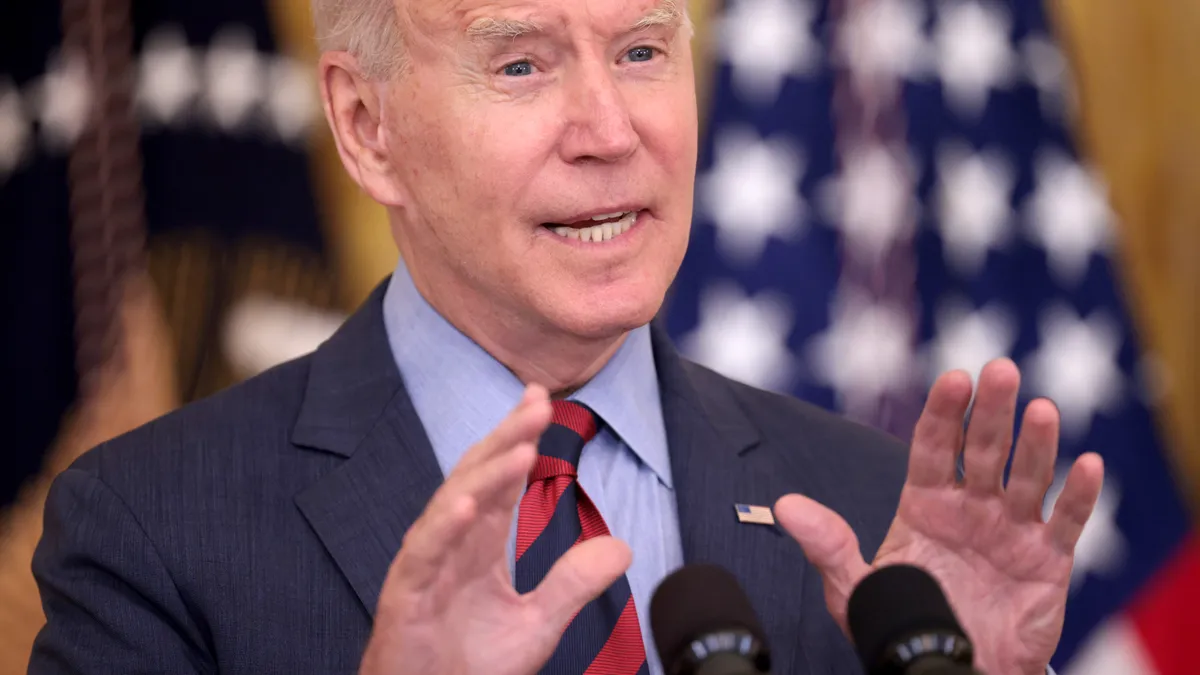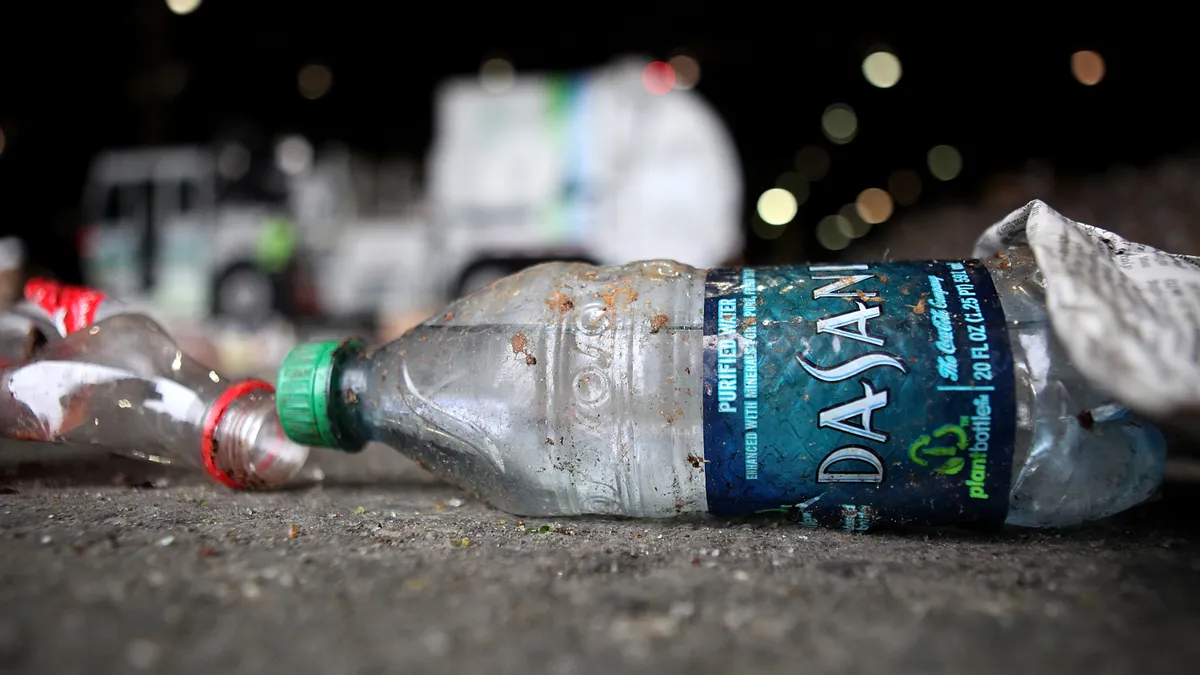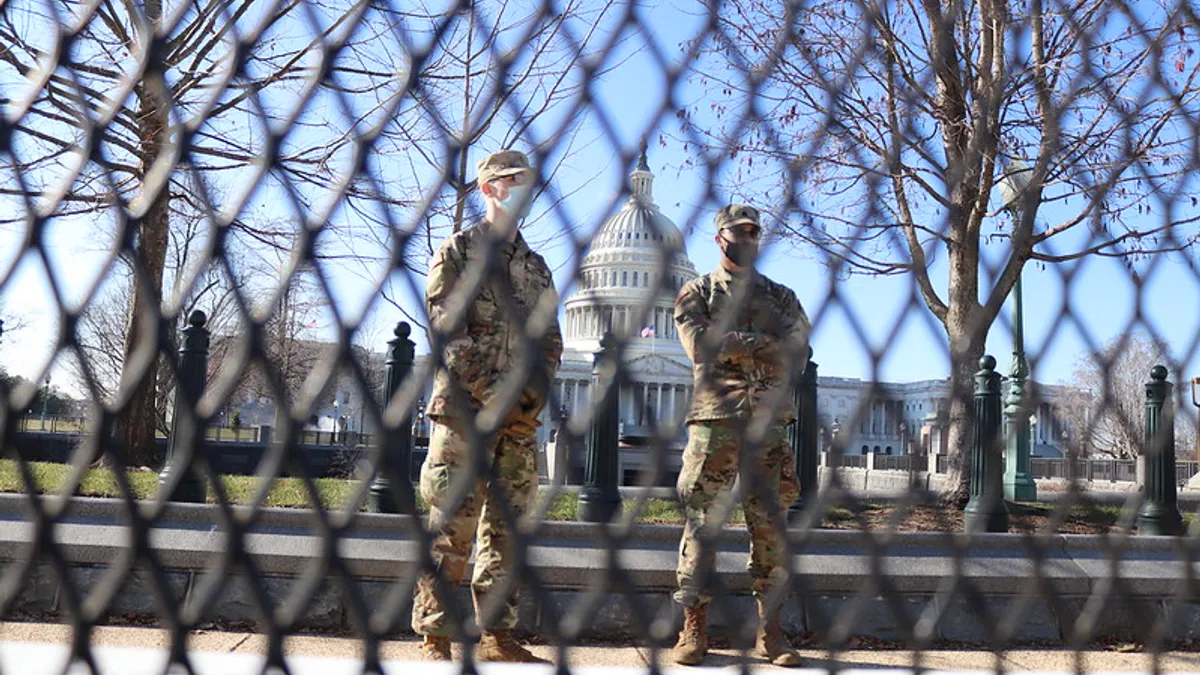As veterans return home to civilian life looking for employment and support, many have been finding it in what may be considered an unusual spot: the waste industry.
Every day, there are veterans looking to work in a structured environment where they can use their leadership skills and other training to make a living. Thousands of them are already employed in the waste sector and waste companies are eager to attract more.
Out of the estimated 20.8 million veterans living in the U.S., a little more than half are currently participating in the workforce. As of October, the unemployment rate for this demographic was 4.3% — lower than the national rate of 4.9% — and has consistently been that way for months.
Companies are now looking for new ways to recruit the people they haven't reached yet and are enlisting the help of current veteran employees to do it.
Ready to lead
"Their training is outstanding, their work ethic is second to none and they are fairly typically good leaders," said Joe Fusco, vice president of Casella Waste Systems, who noted that about 5% of the company’s employees are veterans. "We value the training they have and we value the skills — particularly the people skills — and the work ethic."
Veterans seem to value the appreciation they feel from these companies, as well.
For Carl Ringberg, a senior fleet manager at Waste Management in Minnesota, getting permission from the company to bring his service dog to work sealed the deal. Jed, a golden retriever, helps Ringberg with post traumatic stress disorder from his Army service in Afghanistan and Iraq.
"Having him around makes me more comfortable," he told Waste Dive. "It puts everyone in a good mood to have the dog around."
Ringberg found it hard to adjust to some jobs after leaving close-knit military life in 2004. Since joining Waste Management in 2014, he's found a place where he can use his mechanical knowledge and feel more camaraderie at work.
"With Waste Management, we’re more team-oriented versus being on your own," he said. "Just like in the military you become a family instead of just coworkers."
Waste Management now employs about 3,000 veterans, making up more than 7% of its workforce. Nearly 11% of new hires in 2015 were veterans and the company could exceed those numbers by the end of this year.
As word spreads about companies with accepting work environments that allow veterans to use their skills in a task-oriented way, the effect can be exponential. Covanta has historically employed many U.S. Navy veterans because of their aptitude with boilers and power production from working on submarines. Veterans now comprise 15% of the company’s U.S. workforce.
"While every company needs outstanding managers, the nature of our expanding business has a myriad of different technical skill sets," said Dan Caraccio, vice president and general manager of municipal services for Covanta. "We provide the training, we provide the opportunities, we provide the advancement."
Caraccio, a former infantry captain and West Point graduate, said the potential for career progression is key for people used to a military structure. Covanta employees can move between different sides of the company — energy production, metal recovery, material transfer — and possibly even work internationally. The company currently has employees from the U.S. Marine Corps, Coast Guard, Air National Guard and other branches.
Creative recruiting for jobs with big potential
As veterans become high-demand hires, companies have had to step up their efforts to find them.
Covanta needs more electrical technicians, whereas traditional waste companies need drivers and mechanics. According to the National Waste & Recycling Association (NWRA), there could be a need for 49,300 new collection drivers and 75,100 new diesel mechanics by 2022 based on projected industry growth.
An ongoing driver shortage has already affected some companies on a local level, however a new federal rule change which will make it easier for military personnel to obtain commercial driver's licenses is expected to help.
Many companies work with organizations such as Hiring Our Heroes and a slew of others, attend job fairs and conduct advertising campaigns. They’ve also found that having current employees who are veterans on-hand to talk with potential applicants is key.
"Exposing potential candidates to what we do and our work environment has made a big difference," said Randy Goldberg, vice president of talent acquisition at Republic Services, in an emailed statement. "In addition, leveraging existing veteran employees in the recruitment and onboarding effort is very important. No one is more dedicated to finding great careers for exiting military than employees who have served."
Republic makes a point of checking in with new hires during the first 90 days and pairing them with other employees who have military backgrounds.
Covanta has also had success with this approach. Sometimes the company even holds job fairs at active facilities, allowing applicants to get a first-hand look at what they would be doing and making it possible for them to talk with employees who couldn’t attend job fairs otherwise.
Caraccio, who also serves as a talent ambassador, said he prefers to have current employees on hand from as many different branches as possible at hiring events. This can put veteran applicants at ease and also help recruiters who may not realize how military experience on a resume could translate over to working at Covanta.
"There’s so many acronyms, there’s so many different titles," he said. "It’s like hieroglyphics, they don’t understand what that person did."
Welcoming them home
What many veterans have experienced is often uniquely challenging in ways that even fellow veterans may not always be able to understand. Companies must be mindful of this while also realizing that many veterans don’t want special treatment. Veteran employees say the best thing for their co-workers to do is keep an open mind.
"It’s hard for a veteran to ask for help," said Ringberg. "Be patient and work with them and make sure they’re giving them time to go get the help that they need."
Like any employee, veterans recognize that the mission of collecting and processing waste doesn’t stop. And, as people who served in the “Gulf War-era II” return to the civilian workforce — nearly 3.3 million and counting — the opportunities for veterans to join the waste industry won’t stop either.



















